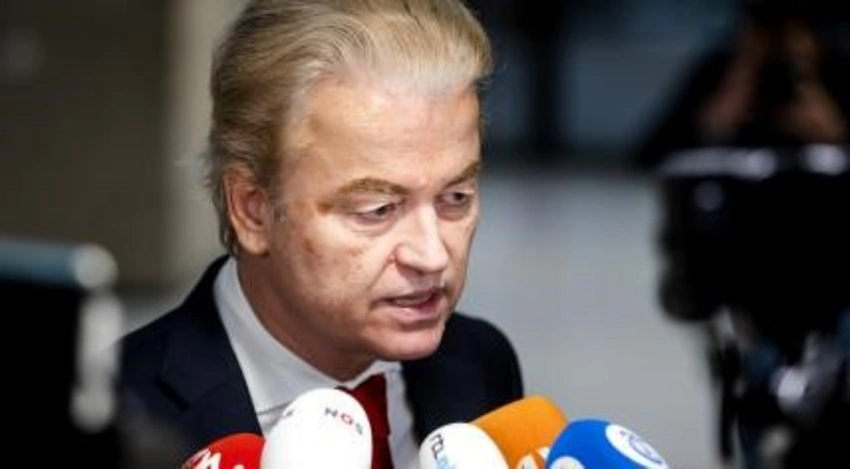The long-suffering formation of the new Dutch government has once again come under scrutiny. Since the election of the far-right Geert Wielders as the new prime minister of the Netherlands, his party was unable to create a coalition to form a government despite numerous rounds of political consultation on the matter.
The latest blow to the process came from one of the participants of the coalition talks. Pieter Omtzigt withdrew his party from the coalition negotiations, claiming crucial financial documents had been withheld from the negotiators.
Omtzigt said he was “very shocked” to learn about the “real financial setbacks and risks” described in a stack of around 20 dispatches from government ministries to Ronald Plasterk, the former home affairs minister who is leading the talks.
The NSC leader said on the TV talk show Humberto that the talks had not collapsed, but stated bluntly: “This round has ended.”
Omtzigt later admitted on TV, spending was the last straw for him. The NSC leader’s campaign heavily relied on “good governance” and “doing politics differently” with substantial doubts about entering the coalition under the leadership of Geert Wielders.
It didn’t take long for Wielders to claim his disbelief of the decision made by the center-right politician Omtzigt.
“Unbelievable and disappointing,” Wilders posted on X. “The Netherlands wants this cabinet and now Pieter Omtzigt is throwing in the towel.”
According to Geert Wilders, Omtzigt acted “fairly disrespectfully.” The PVV leader called it “strange that someone who thinks it is so important that we attach great importance to institutions in the new administrative culture would send the [formation talks leader] a text message and then not show up,” Wilders said to NOS.
VVD leader Dilan Yesilgöz said she was “very surprised” and called for the parties to get back around the table, while BBB leader Caroline van der Plas called it a “total surprise”.
Omtzigt declined the invitation to hold the next round of talks on Wednesday and said he would wait for Plasterk to send his report to parliament, which is due by next Monday. MPs will debate his findings on further notice during this week.
Overall, the situation in the Netherlands seems to be entering a new stage of political turbulence due to the fact that the sides seem to be far apart not only on the matters of immigration but also on the issue of finances. If the parties are not able to find a compromise and a common ground which seems to be even further away, the incumbent government will need to hold another election with the reputation of Geert Wielders being damaged as the responsibility on the formation of the government currently lies on him. It will also provide the public with a feeling that Wielders is not as effective of a manager as he presents himself to be. That said, in case of a new election, it is heavily predicted that Wielders will be the sole beneficiary, as his party is paradoxically believed to earn even more votes than previously.
Nevertheless, the decision by Omtzigt to walk away from the negotiations seems to have rattled all the parties involved and even those who are not. Rob Jetten, leader of the outgoing coalition party D66, also challenged Omtzigt’s statements about the public finances. “If you walk away from the coalition talks when things get a bit difficult, it raises the question of how capable you are of taking responsibility in the next few years,” he said on talk show Op1.
It is up to Ronald Plasterk now to decide whether to form a minority government with three parties, invite the left-wing GroenLinks-PvdA party to form a government, or give up and call new elections.
However, the second option presents unease for Dilan Yesilgöz of the VVD party. She has said that her party would not go into a coalition with GroenLinks-PvdA, presenting yet another blow to the process of the government formation, because of her belief that the voters have clearly decided to have a right-wing government elected. To her, the compromise would involve support from the VVD for left-wing parties in a minority government from outside of the main coalition. Something the left parties are certainly not interested in being a part of.
While the GroenLinks-PvdA has said that they are open to forming a government, they have set certain conditions, such as major concessions from the other parties on issues such as climate change and social justice.
Analysts predict that while the government formation is taking quite long it is still early days days and previous governments had been successfully assembled after months of deliberations. The last Dutch coalition took a record 299 days to form.
While it is unclear how the process will evolve further, the situation is seemingly becoming more untenable for the political classes in the Netherlands with all the sides stepping closer to the new election after 3 months of unsuccessful negotiations.
Jamal Mustafayev


